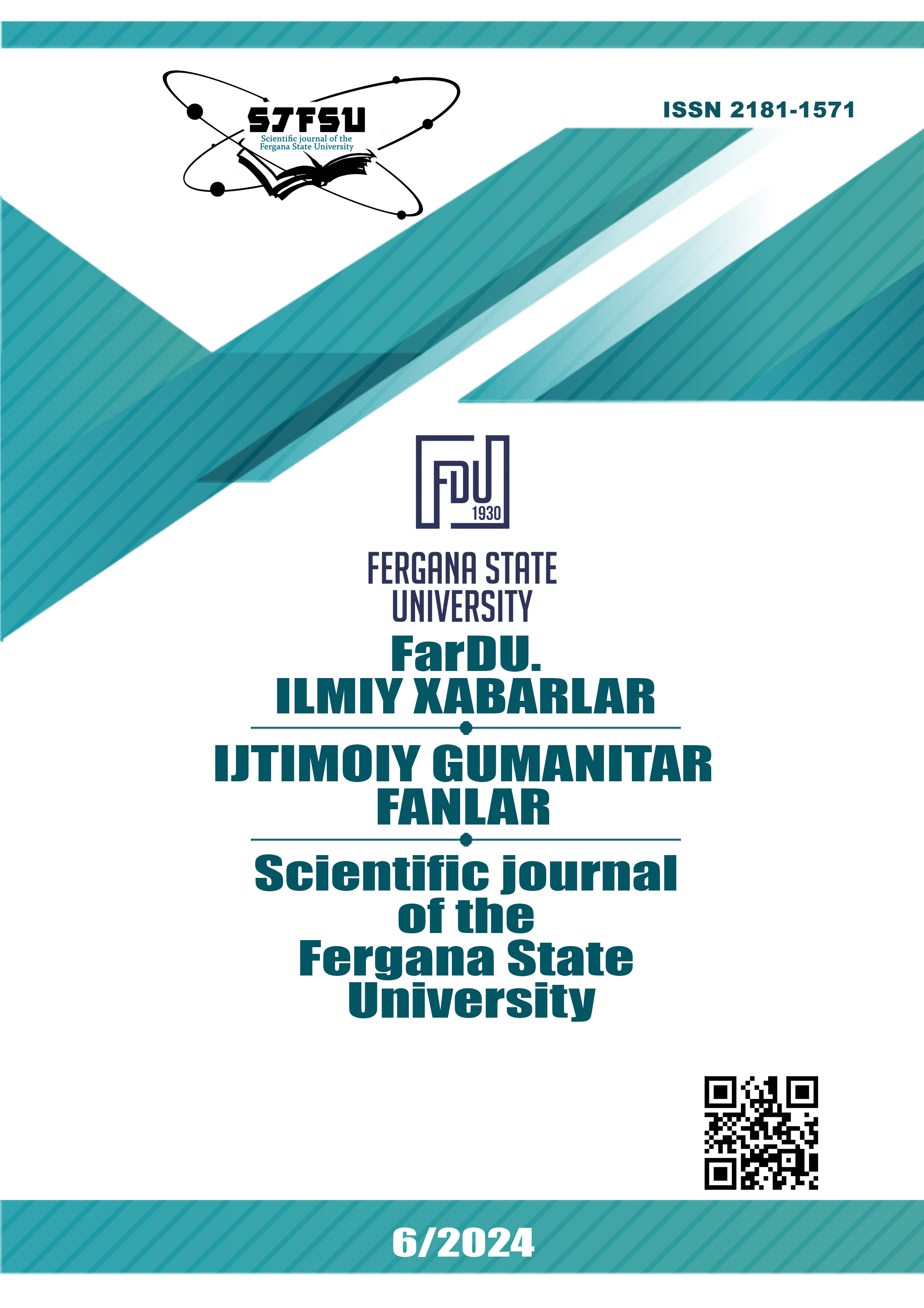LEXICAL TYPOLOGY OF UNITS EXPRESSING «GRATITUDE» IN ENGLISH AND UZBEK LANGUAGES
Keywords:
lexical typology, gratitude, meaning categories, cultural attention, gratitude, thanks.Abstract
This study explores the lexical typology of units expressing «gratitude» in English and Uzbek, aiming to compare and contrast the ways in which both languages encode and express the concept of gratitude. The research analyzes a range of expressions, including single words, phrases, and fixed formulas used to convey appreciation, thankfulness, or indebtedness in social interactions. The study first examines the key expressions of gratitude in both languages, such as the English phrases «thank you,» «thanks,» and «I appreciate it,» alongside the Uzbek equivalents like «rahmat,» «minnatdorman,» and other culturally specific forms. The focus is on the structural and semantic aspects of these expressions, with attention to variations in formality, politeness, and context. The research also delves into the cognitive and cultural frameworks that shape the way gratitude is conceptualized and verbalized in these two languages. For instance, English tends to use more direct, individualistic expressions of thanks, while Uzbek may include more elaborate and honorific forms of gratitude, influenced by social hierarchies and communal values. Additionally, the study addresses the syntactic and pragmatic variations between these two languages, analyzing the use of gratitude in different communicative settings, such as casual conversations, formal speeches, and written expressions. Special attention is given to the non-verbal cues and gestures that often accompany expressions of gratitude in both languages, as these contribute to the overall communicative intention. By identifying the similarities and differences in how gratitude is lexicalized in English and Uzbek, the study provides insights into the cultural and linguistic mechanisms of expressing appreciation, contributing to a deeper understanding of cross-cultural communication and language typology.
References
Bauer L. English Word-formation. – Cambridge, UK: Cambridge University Press, 1983. – 21 p.
Bernard Cormie. Language universals and linguistic typology The University of Chicago press, 1989. – 33 p.
Boers F., Demecheleer M. Metaphor and metonymy in business discourse / Journal of Pragmatics, 33(3), 2001. – P. 431-452.
Charteris-Black J. The communication of financial concepts through metonymy / English for Specific Purposes, 23(3), 2004. – P. 295-311.
John H. McWhorter. The Power of Babel. – 2001. – 56 p.
Tottoli Roberto. The Thanksgiving Prostration («sujūd al-shukr») in Muslim Traditions. Bulletin of the School of Oriental and African Studies, University of London. 61 (2). Cambridge University Press, 1998. – P. 309–310.
Downloads
Published
Issue
Section
License
Copyright (c) 2024 Scientific journal of the Fergana State University

This work is licensed under a Creative Commons Attribution-NonCommercial-NoDerivatives 4.0 International License.
How to Cite
Most read articles by the same author(s)
- , , HISTORICAL AND ECOLOGICAL ASPECTS OF RATIONAL USE AND PROTECTION OF NATURE , Scientific journal of the Fergana State University: No. 1 (2024): FarDU ilmiy xabarlar jurnali ilova to‘plam (GEOGRAFIYA)
- , VIEWS OF TURKESTAN JADIDS ON WOMEN’S EDUCATION , Scientific journal of the Fergana State University: No. 4 (2024): FarDU.Ilmiy xabarlar jurnali (Aniq va tabiiy fanlar)
- , , , , , SYNTHESIS AND STUDY OF THE COMPLEX COMPOUND OF N-(1H-1,2,4-TRIAZOL-YL) ACETAMIDE WITH ZINC (II) CHLORIDE , Scientific journal of the Fergana State University: No. 2 (2025): FarDU ilmiy xabarlari jurnali (Tabiiy fanlar)
- , , , , , SYNTHESIS 3,3'-DISULFANEDIYLBIS(1H-1,2,4-TRIAZOL-5-AMINE) , Scientific journal of the Fergana State University: No. 3 (2022): Scientific journal of the Fergana State University
- , , RESEARCH OF THE DENSITY BY HYDROSTATIC WEIGHT METHOD OF POLYMER COMPOSITE MATERIALS BASED ON RECYCLED POLYETHYLENE WASTE , Scientific journal of the Fergana State University: No. 4 (2024): FarDU.Ilmiy xabarlar jurnali (Aniq va tabiiy fanlar)
- , RESEARCH OF THE DENSITY BY HYDROSTATIC WEIGHT METHOD OF POLYMER COMPOSITE MATERIALS BASED ON RECYCLED POLYETHYLENE WASTE , Scientific journal of the Fergana State University: No. 3 (2024): FarDU.Ilmiy xabarlar jurnali (Aniq va tabiiy fanlar)
- , , , , SYNTHESIS AND STUDY OF COMPLEX COMPOUNDS OF 3-AMINO 1,2,4-TRIAZOLE WITH SALTS OF Co (II), Ni (II) AND Cu (II) , Scientific journal of the Fergana State University: No. 3 (2023): FarDU ilmiy xabarlari jurnali (Aniq va tabiiy fanlar)
- , , TECHNOLOGIES OF TEACHING ELEMENTARY SCHOOL STUDENTS TO EXPRESSIVE READING OF WORKS OF ART , Scientific journal of the Fergana State University: No. 3 (2023): Scientific journal of the Fergana State University (Social humanities sciences)
- Shahnoza Jumanova , AUTUMN MOTIF IN THE POETRY OF USMAN AZIM , Scientific journal of the Fergana State University: No. 2 (2022): Scientific journal of the Fergana State University
- Ibragimov Alijon Aminovich, Amirova Toyiraxon Sheraliyevna, Isakova Shahnoza Shuhratovna, DETERMINATION OF MACRO AND MICRO ELEMENTS IN THE DATE PLANT DIOSPYROS KAKI BY THE MODERN METHOD OF MASS-SPECTROMETRY WITH INDUCTIVELY COUPLED PLASMA , Scientific journal of the Fergana State University: No. 2 (2023): Scientific journal of the Fergana State University (Exact and natural sciences)

